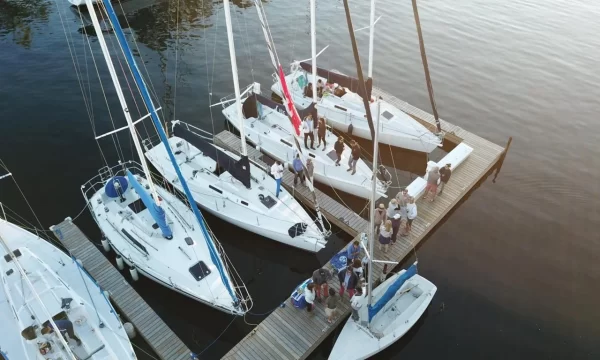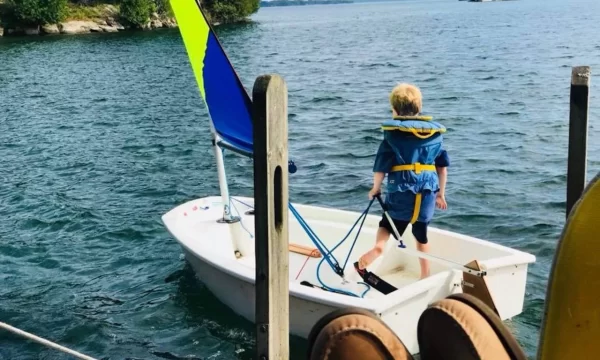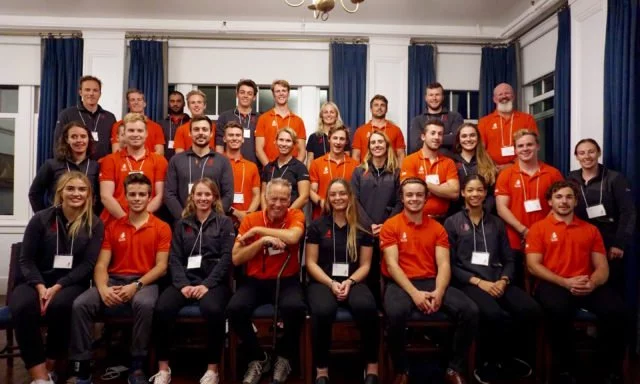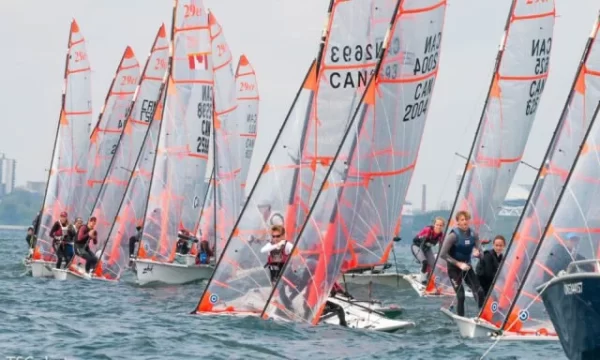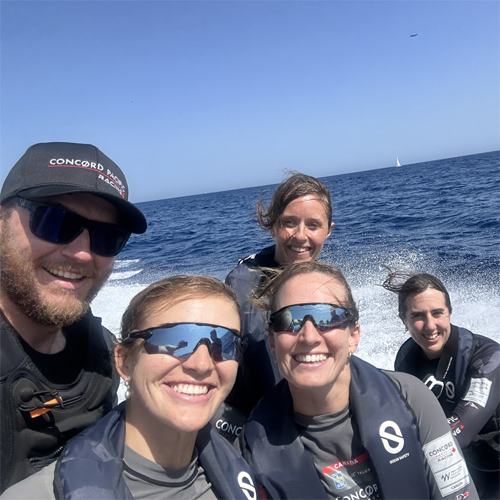 In July, Concord Pacific Racing took a significant step forward, transitioning from virtual simulations to real-world sailing on the water. Youth team athlete Jack Gogan shares his experience and insights from this exciting phase.
In July, Concord Pacific Racing took a significant step forward, transitioning from virtual simulations to real-world sailing on the water. Youth team athlete Jack Gogan shares his experience and insights from this exciting phase.
As soon as we caught wind of the possibility of getting out on an AC40—the foiling boat we’ll be using during the Unicredit Youth America’s Cup—the excitement was palpable. We had been logging serious hours on the simulator in anticipation, and the prospect of finally sailing was a huge motivator. The buildup was intense, with rigorous safety training and a gradual process of getting everyone on the boat. Initially, only one Canadian athlete would be on the boat at a time as we swapped out positions with the more established team we were loaning the boat from. It felt like an endless progression of steps until we finally had the full team on board and Concord Pacific Racing set sail for the first time!
The transition wasn’t without its challenges. The first few days were marked by a few technical issues, from foil malfunctions to miscalibrated wind instruments. Despite these setbacks, our resilience shone through. The technical problems were a test of our patience and problem-solving skills. But each day, despite the hurdles, we learned something new and grew more comfortable with the boat.
The first time I got on the boat was incredibly thrilling. The speed and power were overwhelming. The boat was loud, and the sensation of foiling at high speeds was exhilarating. Despite the intense preparation, nothing could quite prepare us for the real thing. The physical sensation of the wind and the spray, combined with the sheer speed, made it clear why we put in so many hours of training. It’s one thing to simulate it, but being out there, feeling the boat lift and accelerate, was beyond exciting.
One of the most surprising aspects of the transition was how well the simulation training translated to real-world sailing. I was amazed at how similar the experience was. The main differences were obviously the physical sensations, but technically, it felt very familiar. This similarity gave us confidence that our hard work on the simulator was paying off.
Despite the initial nerves, our confidence grew with each sailing session. We’ve all put in long hours, and while there were nerves, knowing how much preparation we’d done was reassuring. The dynamic between team members became stronger as we adapted to each other’s styles and techniques.
Our on-water training primarily focused on boat handling, getting comfortable with various manoeuvres, and preparing for race conditions. Training in open water allowed us to practise as many manoeuvres as possible. One highlight was when one of the AC75s crossed just 50 metres behind us. Seeing those boats up close while sailing our own was surreal and incredibly motivating.
It was a stark contrast to earlier days when we would watch these big boats from the shore during our lunch breaks. Seeing them up close and personal on the water was an awe-inspiring experience. Every day we’d watch these guys out there, and now to be out on the same water, even if not directly lined up with them, felt like a significant step forward.
With our time on the boat sessions nearing an end, we are looking forward to a brief break before resuming intense preparations for the Unicredit Youth America’s Cup. Reflecting on the month, I feel optimistic and excited for the upcoming challenges. We’ve come a long way, and each day on the water has taught us so much. We’re eager to take what we’ve learned back to the simulator and continue refining our skills. The next phase of preparation, especially the four intensive days before the regatta, will be crucial for our success.
Outside of training, we have been enjoying our time in Barcelona. While I admit I’m not yet fluent in Spanish, the vibrant city life and the proximity of amenities have made our stay enjoyable. Team bonding activities, both professional and social, have been integral to maintaining a positive and cohesive team spirit. Barcelona has been fantastic. It’s been a blend of hard work and making the most of our time in a beautiful city.
As we move closer to both the Unicredit Youth America’s Cup and the Puig Women’s America’s Cup, the Concord Pacific Racing team remains committed and focused. The transition from simulator to sea has been a significant milestone, and with continued dedication, we’re confident in our ability to perform on the world stage. Thank you to all our partners and supporters for your unwavering support.

